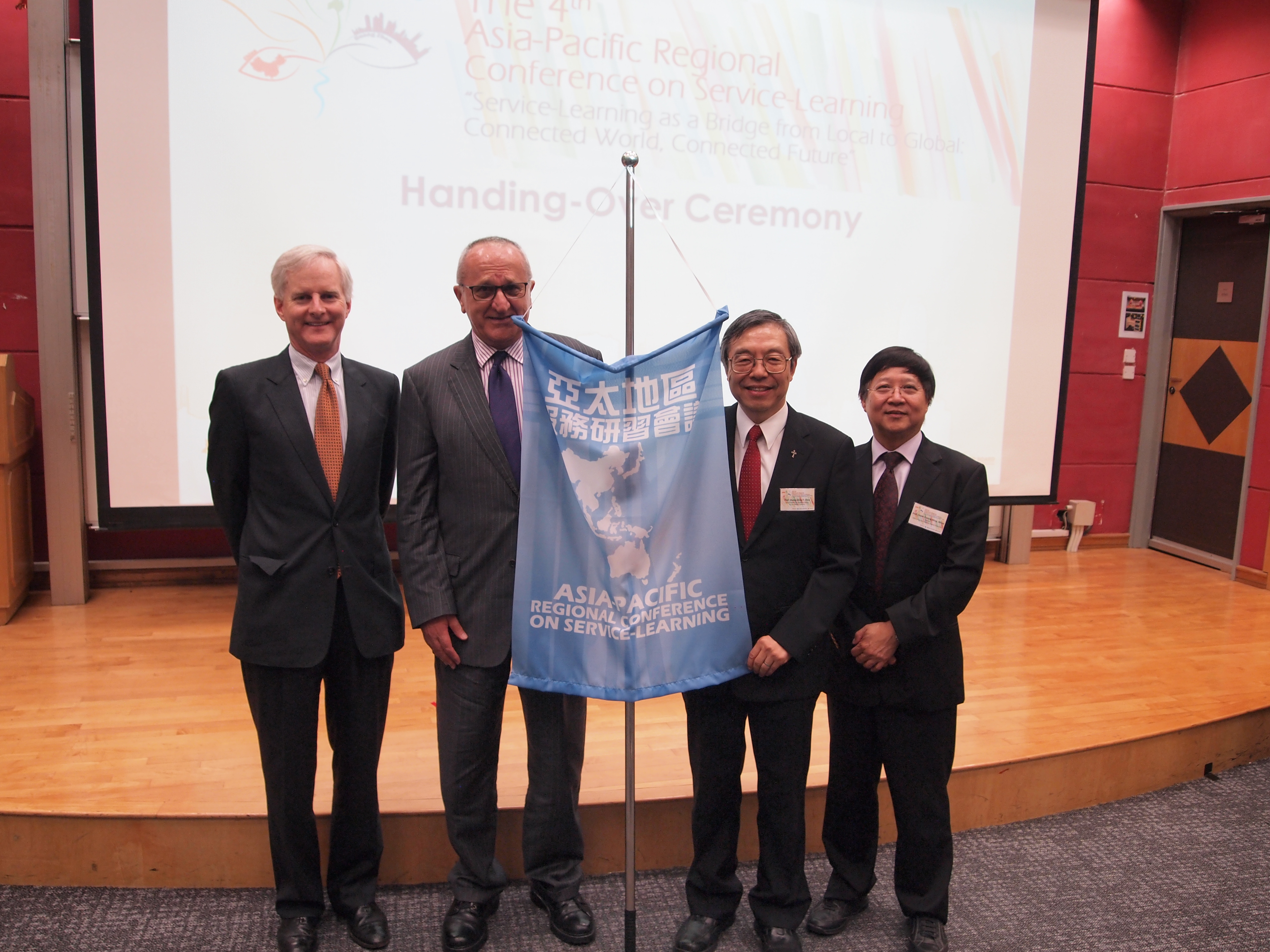Location
MD203, Paul Cardinal Shen Medical Building, Fu Jen University
Start Date
29-5-2015 3:00 PM
End Date
29-5-2015 4:10 PM
Description
Reciprocity, as one of the principles of Service-Learning, entails mutuality in the implementation of an S-L program. One of the facets of mutuality is on the concern on the choice of a community, which serves as program host. The choice is critical to the success or failure of the program.
Universities and colleges have tested-and-proven mechanisms for the selection and sustenance of their community service hosts. Many of them are, however, constrained in maximizing their efforts due to either lack of manpower, resources or even the time to look into potential areas and fields of service. This may be true in central Philippines where Service-Learning is on its infancy stage with most tertiary institutions still in the process of institutionalizing this pedagogy.
With the local government unit - from the provincial, city to the municipal and village levels - mandated to promote human and economic development, it has become incumbent that these existing structures have programs that fit into the formula and objectives of Service-Learning programs.
Many LGU-initiated activities are implemented based on earlier-defined and standard processes, thus ensuring standard operating procedures that are in place to maximize mutual benefit between the students and the host agency. The areas of service in LGU s are wide and deep - from social services to agriculture, environment, health, engineering and technology, education, communication and other disciplines.
This paper looks into ways by which academic institutions engaged in Service-Learning can:
1. Identify potential partners by areas of service, disciplines and locations, including their requirements and expectations
2. Look into the viability of a partnership
3. Forge mutually beneficial tie-ups with LGUs and, thereby
4. Contribute to the empowerment of individuals and communities and eventually their sustainable development
Local government units recognize that these goals are compatible with their thrusts to empower the people. Likewise, the study will also pinpoint possible bottlenecks in program/project implementation and present interventions to address these concerns as w ell as mechanisms to further strengthen S-L partnerships.
Recommended Citation
Loretizo, E. T. (2015, May). Local government units as potential partners in maximizing the effectiveness of service-learning programs of universities in central Philippines. Paper presented at the 5th Asia-Pacific Regional Conference on Service-Learning: Love Journey: Community Engagement through Service-Learning, Fu Jen Catholic University, Taiwan.
Included in
Local government units as potential partners in maximizing the effectiveness of service-learning programs of universities in central Philippines
MD203, Paul Cardinal Shen Medical Building, Fu Jen University
Reciprocity, as one of the principles of Service-Learning, entails mutuality in the implementation of an S-L program. One of the facets of mutuality is on the concern on the choice of a community, which serves as program host. The choice is critical to the success or failure of the program.
Universities and colleges have tested-and-proven mechanisms for the selection and sustenance of their community service hosts. Many of them are, however, constrained in maximizing their efforts due to either lack of manpower, resources or even the time to look into potential areas and fields of service. This may be true in central Philippines where Service-Learning is on its infancy stage with most tertiary institutions still in the process of institutionalizing this pedagogy.
With the local government unit - from the provincial, city to the municipal and village levels - mandated to promote human and economic development, it has become incumbent that these existing structures have programs that fit into the formula and objectives of Service-Learning programs.
Many LGU-initiated activities are implemented based on earlier-defined and standard processes, thus ensuring standard operating procedures that are in place to maximize mutual benefit between the students and the host agency. The areas of service in LGU s are wide and deep - from social services to agriculture, environment, health, engineering and technology, education, communication and other disciplines.
This paper looks into ways by which academic institutions engaged in Service-Learning can:
1. Identify potential partners by areas of service, disciplines and locations, including their requirements and expectations
2. Look into the viability of a partnership
3. Forge mutually beneficial tie-ups with LGUs and, thereby
4. Contribute to the empowerment of individuals and communities and eventually their sustainable development
Local government units recognize that these goals are compatible with their thrusts to empower the people. Likewise, the study will also pinpoint possible bottlenecks in program/project implementation and present interventions to address these concerns as w ell as mechanisms to further strengthen S-L partnerships.
